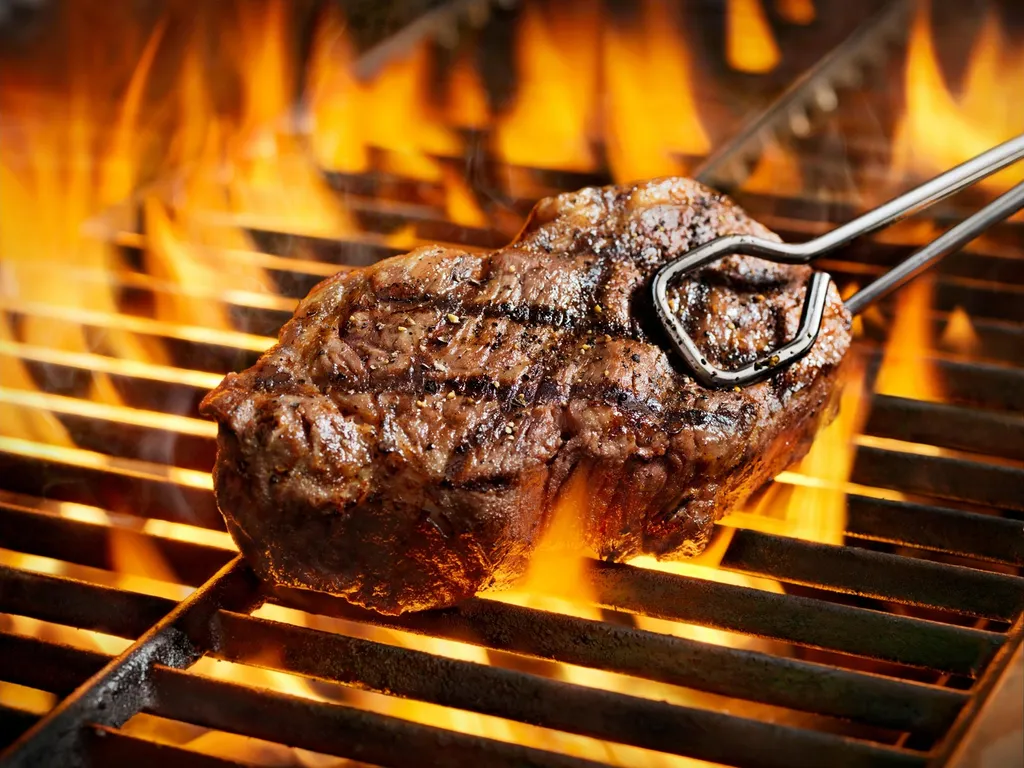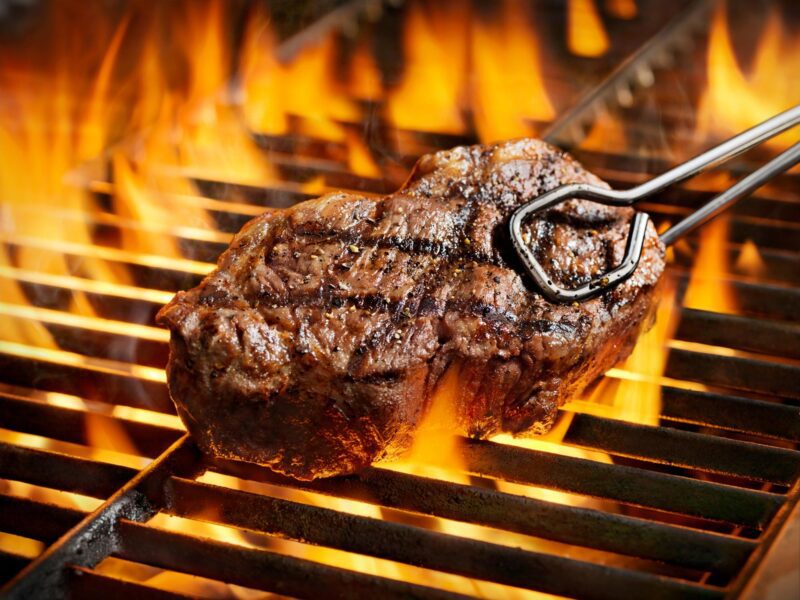
Quelles sont les conséquences pour la santé, notamment en matière de cancer, de la cuisson de la viande au barbecue sur une flamme nue ?
Le barbecue est parfois présenté comme un mode de cuisson plus sain. Par rapport à des méthodes de cuisson comme la friture, qui ont longtemps été considérées comme extrêmement malsaines, la grillade semble être moins grasse. En plus de réduire la consommation de graisses, le barbecue peut limiter l’exposition aux composés dangereux créés lorsque l’huile de cuisson est chauffée. Habituellement, le barbecue se déroule en plein air, ce qui signifie qu’il n’affecte normalement pas la qualité de l’air intérieur. En dépit de tous ces avantages, la cuisson des aliments – en particulier de la viande – à la flamme nue suscite de sérieuses inquiétudes. La principale préoccupation est le cancer.
Comment le barbecue peut augmenter le risque de cancer
Lorsque la viande est chauffée sur une flamme nue, il existe un risque de formation de deux séries de composés cancérigènes. La créatine est un acid in meat prized by bodybuilders and that may have various health benefits and one major downside. The downside is that it turns into cancer-causing heterocyclic amines (HCAs) when heated. The other carcinogenic compound shows up when the fat from cooking meat drips down onto hot coals. The burning fat rises as polycyclic aromatic hydrocarbons (PAHs) in the smoke and sticks to the meat.
At this point, it is important to note that neither of the above chemicals has been proven to cause cancer in humans. They have caused cancer in lab animals at higher doses than humans are likely to consume. There is also an association between grilled meat intake and a precursor of colon cancer known as colorectal adenoma.
How to Lower the Cancer Risk of Barbecued Meat
The first step that some experts suggest is to avoid charcoal as a cooking fuel given the risk of PAHs being created. Given that there is no proof of charcoal being more likely to cause cancer than any other cooking fuel, grill cooks may want to try one of two other suggested methods for lowering cancer risk:
Marination
Marinating meat is good for more than just tenderness and flavor. Marination appears to lower the cancer risk from grilled meats. Researchers found that marinating meat for at least 20 minutes before grilling lowered the concentration of carcinogenic compounds by 72 percent according to one study. One contributing factor to the health benefits of marinades may be the presence of herbs that contain powerful antioxidants.
Microwaving
By microwaving meat before grilling it, it is possible to release some of the fat. The fat is what causes the barbecue flare-ups and generates the PAHs. Microwaving also lessens the time the meat has to spend over the flame. Less time means less exposure to carcinogens.
Leaner Cuts
The cancer risk from consuming grilled meat may be reduced with leaner cuts. There isn’t as much fat in the leaner meat, so there will be less to melt and drip onto the coals and produce the PAHs.
Clean The Grill
The accumulation of charred gunk on grill grates may lead to some of the compounds being transferred to food. The danger can be limited by a thorough cleaning of grates with each cooking session.
Line the Grill
Protecting meat from carcinogens in burning fat makes it safer to eat. A cook can reduce the amount of fat that gets to the coals by lining grill grates with foil. To ensure that the meat does get some flavor benefits from the smoke and for better ventilation, the cook can poke some holes in the foil.
Whether or not cooking over an open flame increases cancer risk, it makes sense to be aware of the danger and take precautions just in case. The simple steps above may help to keep exposure low.
References:
- ncbi.nlm.nih.gov/pmc/articles/PMC5452244/
- pubmed.ncbi.nlm.nih.gov/15199546/
- pubs.acs.org/doi/abs/10.1021/jf404966w



